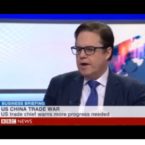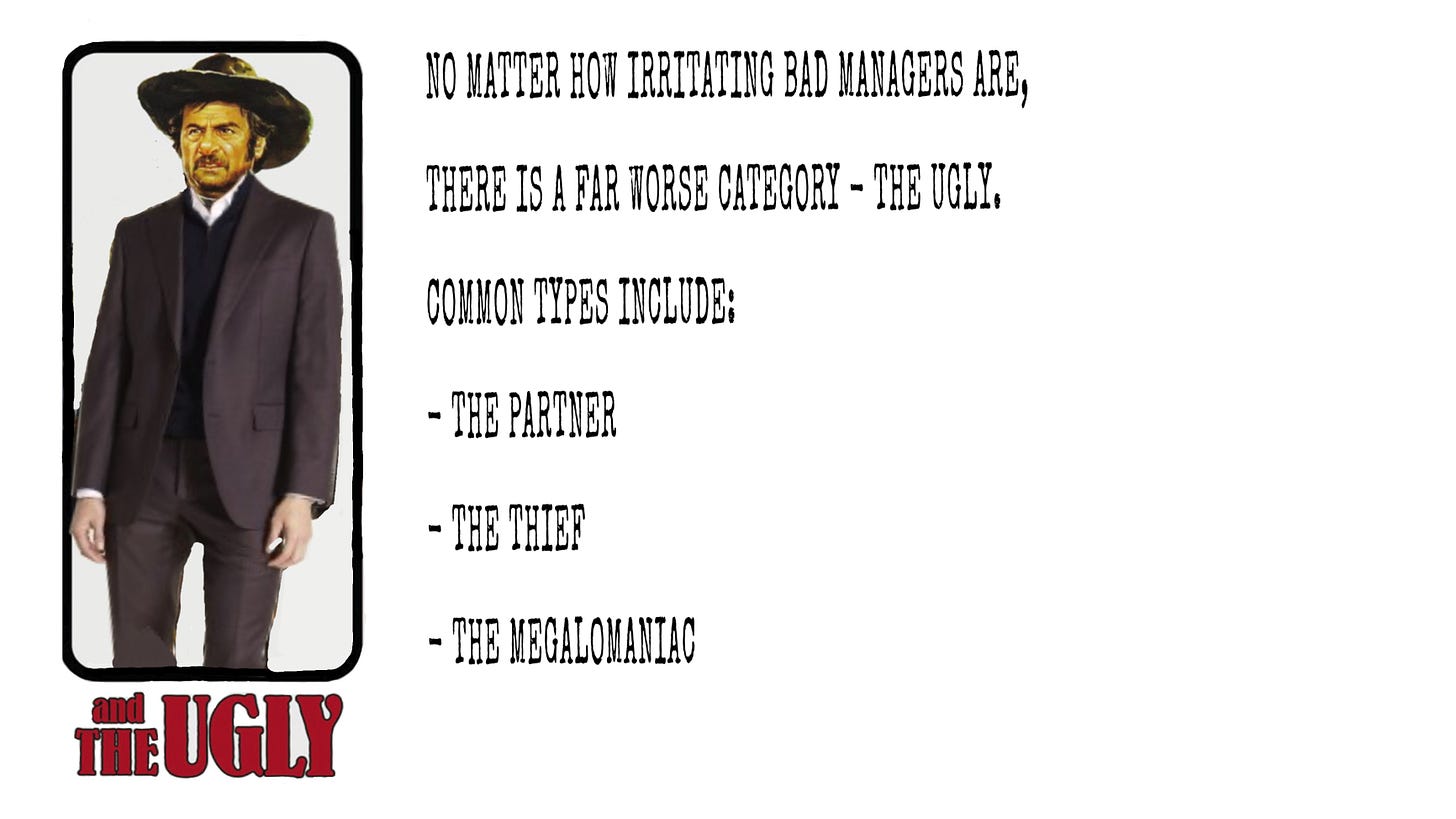
Foreign firms have been isolated more than ever from their China operations because of COVID-19 and the ongoing lockdowns. China lawyer Mark Schaub looks at the situation in 2022: “If you intend to continue with your subsidiaries in China then greater local decision-making power seems to be a likely pre-requisite to success,” he argues in his weekly newsletter. He looks at the good, the bad, and the ugly general managers.
Mark Schaub:
The Bad GMs often have the following traits:
Difficulty in seeking assistance – Often the manager feels it is a solitary responsibility to interpret China and deal with any difficulties which may arise. The problem is that such interpretation may not be objective (i.e. “fish cannot see the water”) or is more complicated and needs HQ support or is serious and HQ has a legitimate right to know what is happening.
Observe not Do – Observers are more comfortable in reporting difficulties to HQ rather than actually tackling the problems. Typically, these General Managers will blame anything other than themselves for a failure to get things done (e.g. the joint venture contract did not give them sufficient powers; the Chinese partner is being mean/difficult/unreasonable; the approvals have not been obtained, etc.).
The Hero – rather than complain about his situation, he revels in any difficult position he may find himself in. Very much like Hollywood movies the Hero cannot be a team player – having others to share the burden would distract too much from the star of the show. When the Hero does communicate with the head office, it is to (1) convince them that they do not understand; (2) cement a position as “our contact in China”. Heroes can normally only survive in General Manager positions if they have a patron in the head office. The reason being that they intend to infuriate everyone else by always replying “this is China”; “you do not understand”; “I have good guanxi” to any normal question one may pose. The good news is that once the patron falls, the hero will normally soon follow suit.
No matter how irritating bad General Managers are, there is a far worse category – the UGLY. The Ugly GMs come in many varieties but some of these include:
The “Partner” – this will typically impact a medium sized company’s WFOE/sourcing operations and flourishes when the General Manager is left to their own devices in China. This isolation has greatly increased since COVID. However, even in the past a visit by HQ personnel will be stage-managed like a Soviet state visit – no chance encounters with any other company personnel. HQ may feel uneasy as to their lack of knowledge of what is happening in their China outpost but are consoled that the venture is making a small profit unlike the JV horror stories. Responsible HQ personnel may resolve to do … something … to investigate its subsidiary in China as soon as there is more time available … but time never does become available … COVID … other fires to put out … other priorities … China is far away. While HQ procrastinates the General Manager will slowly evolve at some imperceptible stage from no longer seeing themselves as an employee but rather as a partner in the HQ’s China business. This is a problem.
The Thief – Unfortunately for some General Managers, the title “CEO” is more an acronym for “chief embezzlement officer” rather than “chief executive officer”. Experience is that since COVID there has been a spike in clients concerns in relation to procurement fraud, embezzlement, diverting funds, competing with the business etc. In my experience, such managers are a small minority but they can be local or expatriate. The most common characteristics are that they thrive in an environment that has little corporate culture, limited oversight, poor controls, no checks and balances and the GM has typically been in their position for a long time. Many people think that there is less such behaviour amongst expatriates. I do not think that is true – it is not that the expatriates are more virtuous they just have not been in their role long enough.
The Megalomaniac – my personal favorite Ugly GM is the Megalomaniac. He resembles the Hero but with two very important differences: 1) unlike the Hero, he does not have the company’s interests at heart – he sees everything as being solely for his benefit; and 2) he does not seek any praise from the head office as he believes they are all deluded fools. Megalomaniacs have either no successor (i.e. no deputy general managers) or an abundance of successors (i.e. five or more deputy general managers). The reason is clear. A potential successor would contradict the main tenant of the megalomaniac’s management philosophy – he is irreplaceable.
Mark Schaub is a speaker at China Speakers Bureau. Do you need him at your (online) meeting or conference? Do get in touch or fill in our speakers’ request form.
Are you looking for more strategic experts at the China Speakers Bureau? Do check out this list.

